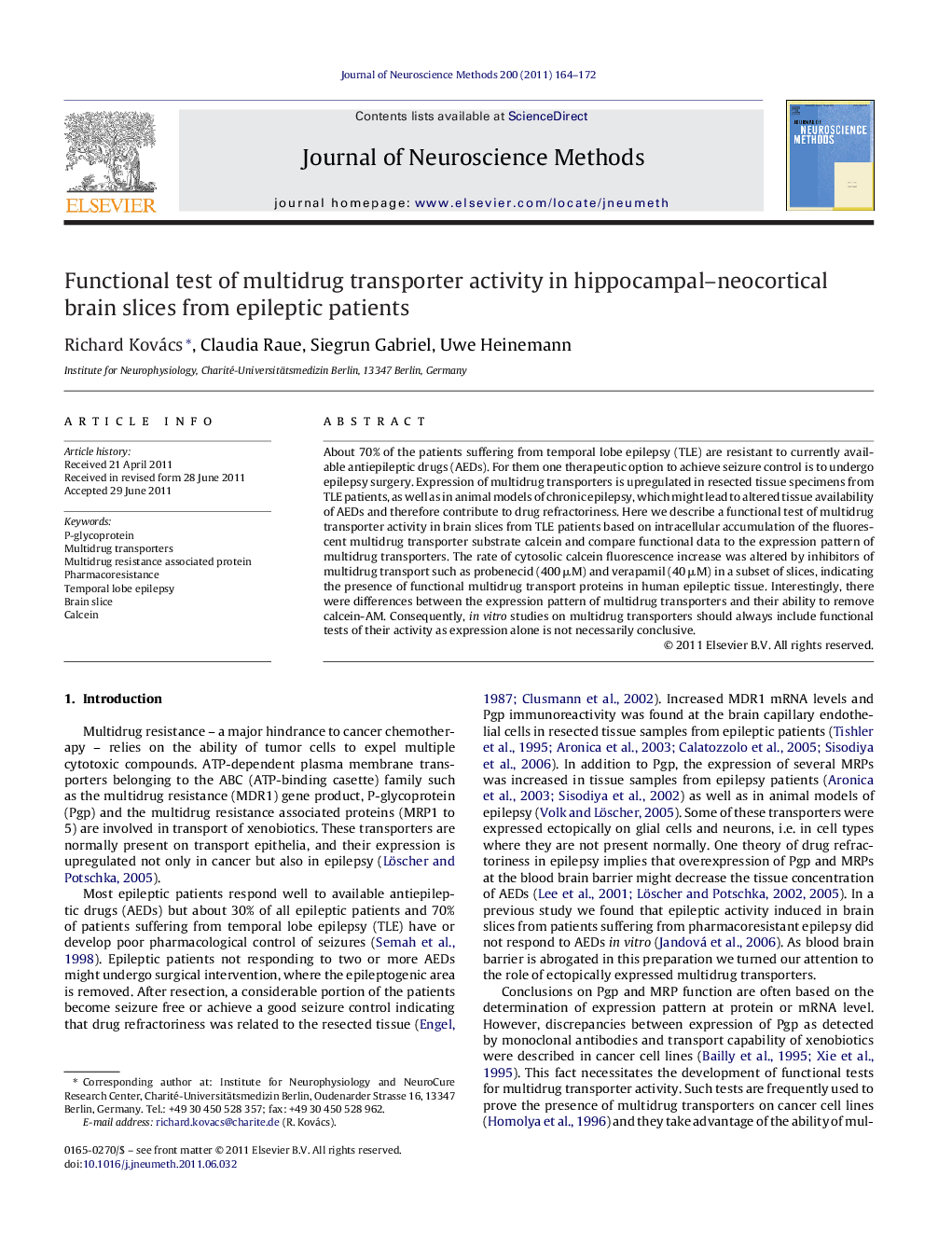| کد مقاله | کد نشریه | سال انتشار | مقاله انگلیسی | نسخه تمام متن |
|---|---|---|---|---|
| 4335283 | 1614652 | 2011 | 9 صفحه PDF | دانلود رایگان |

About 70% of the patients suffering from temporal lobe epilepsy (TLE) are resistant to currently available antiepileptic drugs (AEDs). For them one therapeutic option to achieve seizure control is to undergo epilepsy surgery. Expression of multidrug transporters is upregulated in resected tissue specimens from TLE patients, as well as in animal models of chronic epilepsy, which might lead to altered tissue availability of AEDs and therefore contribute to drug refractoriness. Here we describe a functional test of multidrug transporter activity in brain slices from TLE patients based on intracellular accumulation of the fluorescent multidrug transporter substrate calcein and compare functional data to the expression pattern of multidrug transporters. The rate of cytosolic calcein fluorescence increase was altered by inhibitors of multidrug transport such as probenecid (400 μM) and verapamil (40 μM) in a subset of slices, indicating the presence of functional multidrug transport proteins in human epileptic tissue. Interestingly, there were differences between the expression pattern of multidrug transporters and their ability to remove calcein-AM. Consequently, in vitro studies on multidrug transporters should always include functional tests of their activity as expression alone is not necessarily conclusive.
▶ Drug refractoriness in epilepsy might relay on upregulation of multidrug transporters. ▶ Multidrug transporters were ectopically expressed in all slices from epilepsy patients. ▶ One third of both, neuron and glia expressed one or several multidrug transporters. ▶ Calcein accumulation is altered by probenecid/verapamil in ∼60% of slices. ▶ Thus multidrug transporters are expressed but not functioning in a subset of slices.
Journal: Journal of Neuroscience Methods - Volume 200, Issue 2, 15 September 2011, Pages 164–172